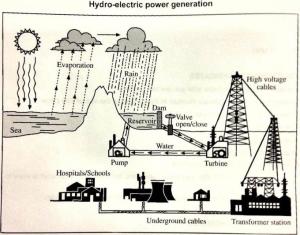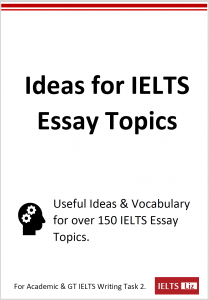Here is a recently reported essay question for IELTS writing task 2 and below are some ideas to help you with this topic.
Some people think that planting trees in open spaces in cities and towns is more important than building houses. To what extent do you agree or disagree?
Reasons for Using City Space for Trees
- Trees and green areas create a peaceful living environment which promotes a better living standard and better mental health.
- Trees produce oxygen which can counteract against heavy pollution in cities and create a better quality of air.
- Heat in cities can be better controlled by having more trees which filter the sun’s heat and offer shade. This ultimately lowers the temperature.
- Planting more trees in urban areas brings nature into cities which is beneficial to people without access to rural areas.
- Noise levels can also be reduced by planting trees which can act as a buffer against sound.
- Planting more trees can make the living environment more pleasant which is thought to reduce crime to some extent. Trees encourage people to enjoy their neighbourhood and be more active in it which deters petty crime.
- Trees offer urban wildlife a better environment to live in and play a part in the ecosystem of a city.
Reasons for Using City Space for Housing
- Lack of affordable housing can lead to rising crime rates. Thus by having more housing, there are more opportunities for everyone to get housing.
- Without more housing, a city is unable to grow and develop which is essential in a world with an increasing population.
- Housing is also essential for any country which is hoping to develop its economy as workers must have access to affordable homes.
- Shelter is a basic requirement for life.
- Urban space is limited and priority should be given to shelter rather than creating pleasant parks.
- Without enough homes, people can become homeless which can leads to alcoholism and drugs or slums can develop which can be detrimental to any country.
Recommended
- All Essay Ideas
- Recent Exam Topics
- More information about trees in urban areas
- All Environment and Natural World Topic Lessons







